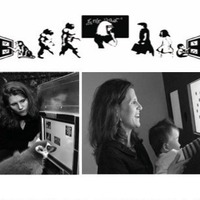Developmental and Evolutionary Foundations of the Human Mathematical Mind
Elizabeth M. Brannon, University of Pennsylvania
The ability to use numbers is one of the most complex cognitive abilities that humans possess and is often held up as a defining feature of the human mind. Alongside the uniquely human symbolic system for representing number we possess an approximate number system (ANS) that is evolutionarily ancient and developmentally conservative. In my talk I will illustrate the signatures of the ANS with experimental data from human babies and nonhuman primates. I will describe behavioral and neurobiological data that demonstrates how the human and nonhuman primate mind privileges numerical information over other types of quantitative information. I will argue that this numerical privilege implicates the biological importance of number in our evolutionary history. Finally, I will ask whether we can harness the ANS to improve math performance and discuss some of the limitations of this work.
Elizabeth M. Brannon is the Edmund J. and Louise W. Kahn Term Chair Professor of Psychology. Her research focuses on the development and evolutionary building blocks of numerical cognition using diverse subject populations (human adults, children of all ages, and nonhuman primates) and a suite of behavioral and neurobiological methods (psychophysical behavioral methods, fMRI, ERP, EEG, single-unit recording in monkeys). Dr. Brannon has received numerous academic awards and honors including the Young Investigator Award from The Society for Experimental Psychology, a CAREER award from the National Science Foundation, a Merck Scholar Award, and a James McDonnell Scholar Award. Dr. Brannon’s research is currently funded by both The National Institutes for Child Health & Development and The National Science Foundation. She is an associate editor at Open Mind, serves on the board of The Mathematical Cognition and Learning Society, and directs the psychology honors program for the psychology department at Penn.
Sponsored by the Cognitive Science Program
Free and open to the public!
